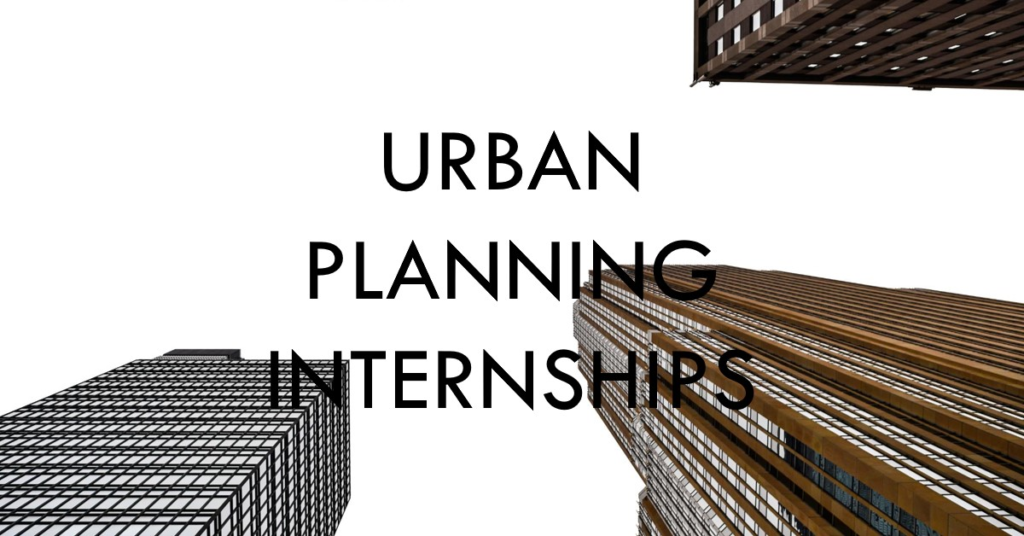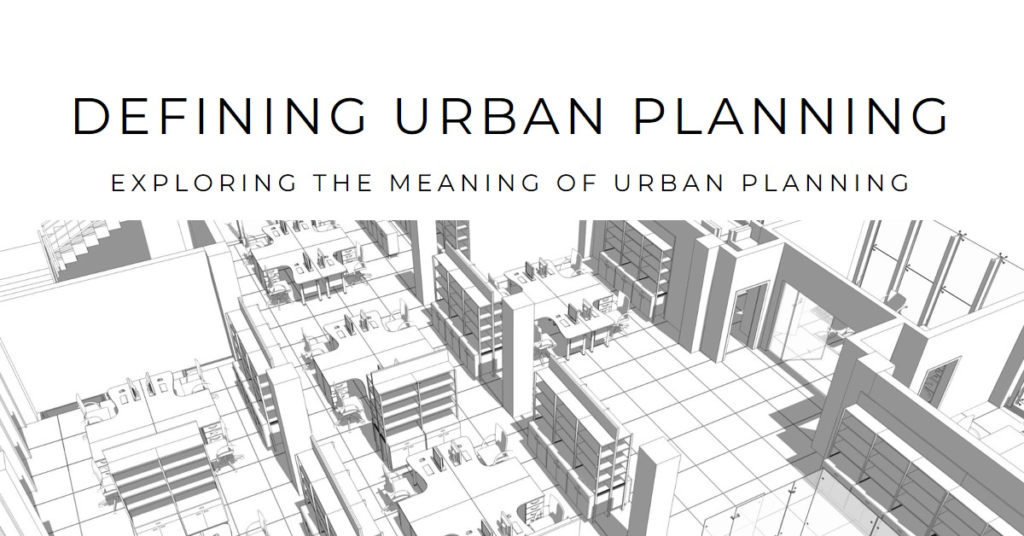
Table of Contents
- Introduction:
- Understanding the Importance of Urban Planning Internships:
- Identifying Your Goals and Interests:
- Researching Potential Opportunities:
- Networking: Building Connections in the Industry:
- Crafting a Standout Resume and Cover Letter:
- Preparing for the Interview:
- Gaining Relevant Experience:
- Making the Most of Your Internship:
- Reflecting on Your Experience:
- Continuing Your Professional Development:
- Conclusion:
Introduction:
Urban planning is a dynamic field that shapes the very fabric of our cities and communities. For aspiring urban planners, internships serve as a critical stepping stone toward a successful career. They provide hands-on experience, networking opportunities, and a deep understanding of the practical aspects of urban planning. This guide will help you get started on securing an urban planning internship and making the most of this invaluable opportunity.
Understanding the Importance of Urban Planning Internships:
Urban planning internships are not just a box to tick off on your resume; they are a gateway to understanding the complexities of city development and management. These internships bridge the gap between theoretical knowledge and practical application, offering a real-world perspective that is crucial for any aspiring urban planner.
Firstly, internships allow you to apply classroom concepts to real-life scenarios, enhancing your understanding and retention of the material. This practical experience is invaluable as it provides a solid foundation for your future career. Secondly, internships offer a chance to work alongside experienced professionals, gaining insights into the industry’s best practices and emerging trends.
Identifying Your Goals and Interests:
Before you start your search for an internship, it is essential to identify your goals and interests within the field of urban planning. Urban planning encompasses various specializations such as transportation planning, environmental planning, urban design, and community development.
Consider what aspect of urban planning excites you the most. Are you passionate about sustainable development, or are you more interested in transportation systems? Identifying your specific interests will help you target the right opportunities and tailor your applications to reflect your passion and expertise.
Researching Potential Opportunities:
With a clear understanding of your goals, the next step is to research potential internship opportunities. Begin by exploring various organizations that offer internships in urban planning. These can include government agencies, non-profit organizations, private consulting firms, and academic institutions.
Utilize online resources such as job boards, company websites, and professional associations related to urban planning. Websites like the American Planning Association (APA) and the Urban Land Institute (ULI) often list internship opportunities and can be valuable resources in your search.
Networking: Building Connections in the Industry:
Networking plays a crucial role in securing an internship. Building connections within the industry can provide you with insider information about available opportunities and increase your chances of landing a position.
Attend industry conferences, seminars, and workshops to meet professionals in the field. Join professional organizations and participate in local chapter meetings. Don’t underestimate the power of social media platforms like LinkedIn, where you can connect with professionals, join relevant groups, and stay updated on industry news and job postings.
Crafting a Standout Resume and Cover Letter:
Once you have identified potential opportunities and built a network, the next step is to craft a standout resume and cover letter. Your resume should highlight your relevant coursework, skills, and any previous experience related to urban planning. Be sure to include any volunteer work, projects, or part-time jobs that demonstrate your commitment and interest in the field.:
Your cover letter should be tailored to each specific internship, emphasizing why you are interested in the position and how your skills and experiences make you a suitable candidate. Use this opportunity to showcase your passion for urban planning and explain how the internship aligns with your career goals.
Preparing for the Interview:
Securing an interview is a significant step towards landing an internship. Preparing for the interview is crucial to make a positive impression. Research the organization thoroughly to understand its mission, values, and recent projects. Be prepared to discuss how your skills and experiences align with the organization’s goals.
Practice common interview questions and be ready to provide examples of your problem-solving abilities, teamwork experiences, and any relevant projects you have worked on. Additionally, prepare thoughtful questions to ask the interviewer, demonstrating your genuine interest in the organization and the internship.
Gaining Relevant Experience:
While waiting for responses from potential internships, consider gaining relevant experience through volunteer work, part-time jobs, or independent projects. This additional experience can enhance your resume and provide further talking points during interviews.
Volunteering with local planning committees, participating in community development projects, or working on independent research can all provide valuable experience. These activities demonstrate your proactive approach and commitment to urban planning, making you a more attractive candidate to potential employers.


Making the Most of Your Internship:
Once you have secured an internship, it is essential to make the most of the opportunity. Approach your internship with a proactive attitude, eager to learn and contribute. Set clear goals for what you want to achieve during your internship and regularly seek feedback from your supervisors.
Take initiative on projects, ask questions, and seek opportunities to expand your knowledge and skills. Building positive relationships with your colleagues can lead to valuable mentorship and networking opportunities that will benefit your future career.
Reflecting on Your Experience:
After completing your internship, take time to reflect on your experience. Consider what you learned, the skills you developed, and how the internship has influenced your career goals. Reflecting on your experience will help you articulate your achievements and growth in future job applications and interviews.
Document your accomplishments and gather any feedback or references from your supervisors. This reflection will also help you identify any areas where you need further development, guiding your future learning and career path.
Continuing Your Professional Development:
An internship is just the beginning of your journey in urban planning. Continuing your professional development is crucial to staying current in the field and advancing your career. Consider pursuing additional certifications, attending workshops, and enrolling in advanced courses related to urban planning.
Stay active in professional organizations and continue networking with industry professionals. Keeping up with industry publications and participating in relevant online forums can also help you stay informed about emerging trends and opportunities in urban planning.
Conclusion:
Securing and excelling in an urban planning internship requires a strategic approach, from identifying your interests and researching opportunities to networking and preparing for interviews. By following these steps, you can embark on a rewarding internship experience that will lay a solid foundation for your career in urban planning. Remember, the journey does not end with an internship; continuous learning and professional development are key to thriving in this dynamic and impactful field.


